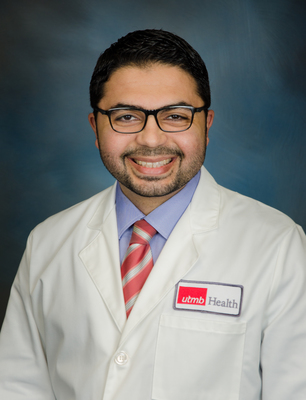According to the American Cancer Society, prostate cancer is the second leading cause of cancer death in American men, behind only lung cancer. About 1 out of every 41 men will die of it.
These statistics are why members of the UTMB Health Urology team are so passionate about spreading information about the sometimes-silent disease.
"When they are aware of the disease, men are more likely to seek help from physicians and have conversations about
it,” says Dr. Laith Alzweri, surgeon and associate professor within the Department of Surgery’s Urology Division.
Dr. Stephen Williams, a clinical leader and professor within the departments of Surgery and Radiology, wants patients to know that if they do end up with a positive diagnosis for prostate cancer, there’s lots of options for next steps, but it’s
key to have a care team you can trust to guide you throughout the process.
Dr. Stephen Williams on prostate treatment options
Here for patients from diagnosis through survivorship, the UTMB Health Men's Health team is passionate about ensuring patients don’t just survive, but that they thrive before, during and after treatments they receive.
“Life doesn’t end or stop when you have cancer,” he says.